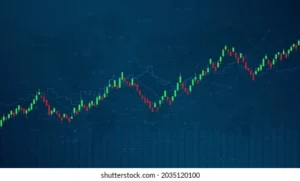
Cryptocurrencies are widely spreading, especially in the ever-expanding field of forex trading, and deposits are a hit. Although offering cryptocurrencies as payment methods may be viewed as a trend, it has the potential to revolutionize the way people trade in the forex market. Crypto deposits are swift and safe and can be made anywhere worldwide, perfect for today’s digital traders.
This change has given the forex trading experience a new dimension of effectiveness and ease. However, with every innovation comes a set of special considerations. This article delves into how crypto deposit affects forex trading, the opportunities they provides, the difficulties it poses, and its prospects.
Why Crypto Deposits Stand Out
1. Speed of Transactions
Generally, Forex trading may require immediate intervention, particularly during volatile sessions. In conventional systems of money transfers, such as wire transfers, money may take days to be credited. Crypto assets such as Bitcoins and Ethereum also offer near real-time transfers, making it easier for traders to fund their accounts without suffering losses that come with market fluctuations.
2. Lower Costs
Holding fees on international transfers are possible and may be high for traders who engage in widespread depositing or withdrawing. Cryptocurrencies do not transition through the standard banking platforms. As a result, their trading costs are considerably low.
3. Enhanced Security
More than that, blockchain technology has high security in financial transactions. Traders can also pay through cryptocurrencies without sharing their banking details with brokers, thus lowering the likelihood of getting defrauded.
4. Global Accessibility
Cryptocurrencies are decentralized, and these traders, including those from parts of the world with limited banking services, can open forex trading accounts. This inclusiveness is slowly making forex an international market.
The hurdles of Crypto Deposits in forex
1. Volatility Concerns
The risks related to cryptocurrencies are that they are very unpredictable, so traders are usually affected. For instance, a deposit in the form of Bitcoin can reduce in value while still being held as a deposit until it is converted to a trading balance. Some brokers solve this by directly allowing conversion to stable coins or fiat, yet volatility remains an issue.
2. Regulatory Uncertainty
The legal status of cryptocurrency is still a problem – it is different in different countries. Some countries allow people to trade cryptocurrencies, some regulate it, and some completely outlaw it. This uncertainty can pose difficulties to both tradespersons and brokers.
3. Technical Complexity
New entrants into the crypto market find handling wallets, knowing about keys, and the security of transactions a bit challenging. Hence, forex brokers offering crypto deposits should ensure they spend decent money educating their users on the best action to undertake in such situations, as highlighted in the Hankotrade review.
Brokers and the Adoption of Crypto Currencies
To the fore there are various types of Forex brokers who specialize in operating between digital currencies and traditional markets. Platforms integrating crypto deposits provide several advantages:
- Faster Funding: Spot crypto deposit means traders can respond quickly in volatile forex markets.
- Broader Appeal: With crypto options, brokers can pull in a fresher and more heterogeneous crowd of traders, including computer geeks and those who want more privacy than anything else.
- Increased Competitiveness: By incorporating crypto-friendly policies, the brokers stand out from numerous others in the market.
Hankotrade and the like are in the vanguard of this noticeable movement with the aim of offering cryptocurrency deposit integration to improve the trading system.
Effects That Crypto Deposits Have on Trading Techniques
The introduction of crypto deposits is not just about convenience; it also shapes trading strategies in several ways:
- Market Fluctuation Sensitivity
Since account funding can be done on a timely basis, traders can act in response to market opportunities or calls for more margin.
- Portfolio Diversification
Using cryptocurrencies as trading assets combined with more traditional fiat money means that traders can hedge their bets against numerous financial assets. This is especially true during critical economic periods, so you can be ready when the business reins.
- Market access for under-served consumers
Countries with constraints on their access to the global banking system can now indulge in forex due to the decentralized nature of cryptocurrency.
Future of Crypto in Forex Trading
Cryptocurrencies combined with forex trading are still in their infancy, but the returns are staggering. Other related advancements like DeFi trading, tokenization of different markets, and more can push the envelope further and give traders even more ways to go about trading.
Other policies that will come to our aid are the regulations. Since authorities and financial organizations adjust the strategies in cryptocurrencies, cryptocurrency deposits’ use will expand. More concise and clear rules may help minimize such issues and make more brokers adopt these payments.
Moreover, there is a phenomenon of stablecoins, a top type of cryptocurrency characterized by low price fluctuations that may help avoid shifting deposit values. Traditional cryptocurrencies such as USDT (Tether) or USDC are gradually used in forex trading, connecting crypto and fiat money.
Conclusion
Cryptocurrencies are also revolutionizing forex trading since they present deposit services that are much faster, cheaper, and more secure. Despite these challenges like high fluctuation and uncertainties like regulation issues, the overall gains realized from integrating crypto deposits outstrip the vices. In this regard, regardless of the further development of the forex market, cryptocurrencies will become one of the key ways to make payments for traders and brokers. Besides making the operation more efficient, it made global participation and innovation in trading systems possible.







